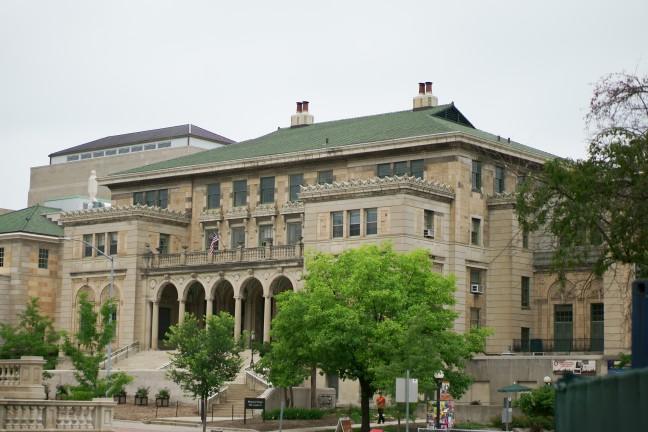Balance is so utterly central to a college career. Spend enough time studying but take enough time for yourself. Take plenty of notes in class but not so many that you miss the big picture. Maintain your friendships on campus but don’t forget to call your friends from home. Diversify your resume but keep a central focus in mind. Get adequately involved in extracurriculars but don’t overload your schedule.
Unavoidably, college students are required to juggle multitudes of responsibilities. At the heart of it, this design is intended to ensure each student is the most attractive hire possible. It’s quite simple — a student with a more impressive resume and track record stands a better chance at landing a career in a crowded market than does a student who hasn’t applied themselves as comprehensively.
It’s not unreasonable to assume a lengthier resume, complete with extracurricular experience, internships and an impressive academic record signals a more promising candidate in employers’ eyes.
But the question remains — where should a budding student devote their limited energy? Should students be more concerned with garnering semi-professional experience through extracurriculars? Should their passion be honed into coursework designed to provide them the skills necessary to succeed in the future? Should the comparison be binary at all?
For starters, let’s clarify something rather obvious. A college education is a privilege, and the opportunities for growth, networking and learning afforded to university students across the nation are as valuable as experiences get. As such, applying yourself to the best of your abilities across the board should not be seen as a goal, but an expectation.
Still, it’s rather difficult to ignore the growing expectations of recent graduates, which seem increasingly more normal as career specialization becomes more nuanced. In essence, college students face more pressure to be as academically and professionally decorated as possible in order to land a career of their choosing.
In some ways, this is a positive. From a logical perspective, the more experienced and knowledgeable an applicant, the more productive and career-ready the individual. The more professionally prepared an amateur, the more promising their potential as an employee. What’s more, classes are designed to lay a general groundwork for an eventual career and as such, applying them to extracurriculars is only natural, if not expected.
The question remains — should students value extracurricular experience over class periods? Put in the simplest terms, yes. If the class’ purpose is to provide students with the information necessary to thrive in their desired career, why shouldn’t the majority of that student’s passion be channeled into applying those skills? While classes may do their best to replicate a professional environment, there’s something intrinsically valuable about undertaking and accomplishing a fulfilling task without motivation for a glowing grade.
In an increasingly competitive job market, freelancing provides opportunities for young graduates
Perhaps that’s the nature of a professional field. Pure fulfillment void of outside academic influence. While a grade can be fulfilling in its own right, often that fulfillment is short-lived as the reward is solely that grade.
The reward for spearheading, planning and executing an event for a club whose values you care deeply about has significantly higher an impact than does a group project. You’re able to see your vision in action. You’re able to gauge a public response. Most of all, you’re able to more effectively grow personally since the implications of your actions have a more tangible impact in the professional sphere than they do in a classroom.
The purpose of this comparison is not to devalue what a class can offer, nor is it to encourage inaction or flippancy when it comes to academia. Instead, it’s to emphasize that a class is simply a starting point. Devoting adequate time and energy to your classes is essential. But often, the real fulfillment stems from experience outside a regimented classroom setting where you can see your work impact more than your TA.
The sooner this mindset is adopted, the sooner we’ll see two major results. First, there will be no measurable drop in average grades or attendance in classes — rather the information acquired there will only become more valuable. How can we be expected to succeed in a professional environment with that baseline knowledge? Second, the more we emphasize the holistic value of extracurricular participation, the more decorated and well-practiced young professionals will be on average.
Higher expectations for college graduates doesn’t just mean more work on our part — it also means more abundant opportunities to apply our budding knowledge.
Lucas Johnson ([email protected]) is a sophomore majoring in journalism and strategic communication.





















